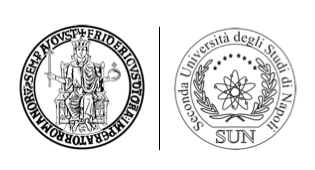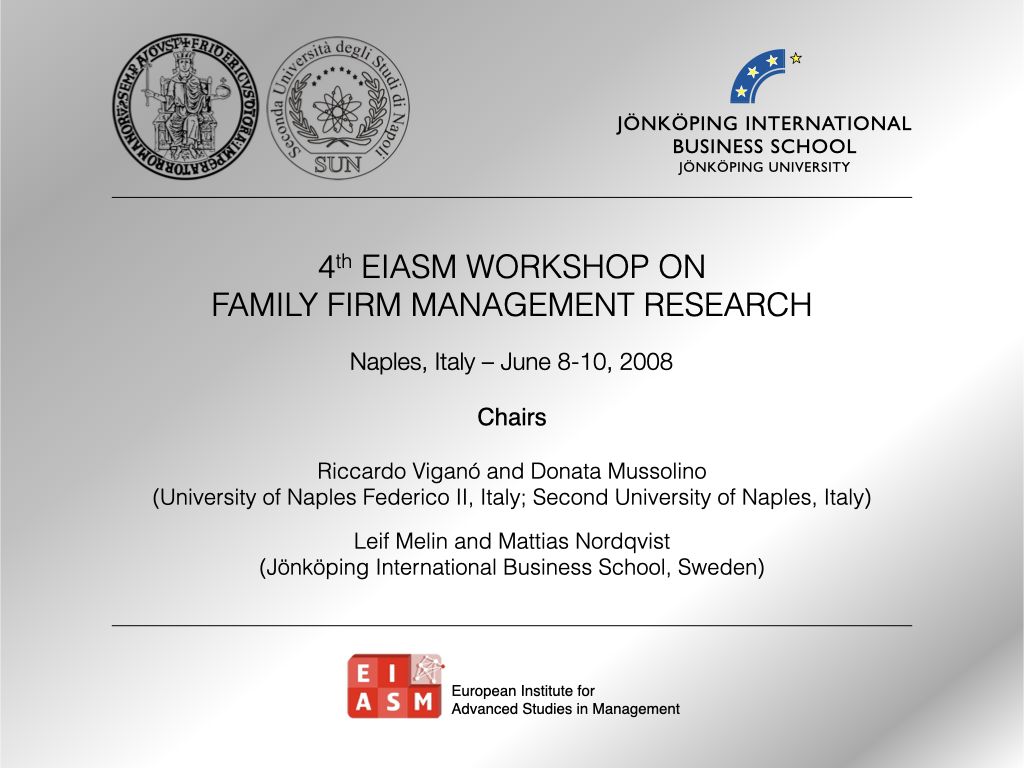4th EIASM Workshop on Family Firm Management Research
Naples, Italy – June 8-10, 2008
Family firms Management
Chairs
Riccardo Viganó and Donata Mussolino
University of Naples Federico II, Italy; Second University of Naples, Italy
Leif Melin and Mattias Nordqvist
CeFEO, Jönköping International Business School, Sweden
Keynote Speakers
Pramodita Sharma
Wilfried Laurier University, Canada
Andrea Colli
Bocconi University, Italy
Guido Corbetta
Bocconi University, Italy

Co-organizer
University of Naples Federico II, Italy
Second University of Naples, Italy
Call for papers
“Family firms” are defined as family-owned or family managed firms. Only papers dealing with at least one of these populations are welcomed. Four categories of research are of interest for the workshop:
- Conceptual and empirical research focusing on the specific sub-theme of “Management and Governance in Family Firms”. Possible topics include but are not limited to:
- National corporate governance systems
- The role of the board
- Accounting practices
- Management control
- Non-family CEO
- The relationship between the board and top management
- Strategic management
- Next generation leadership
- The role of family councils and constitutions
- Literature reviews focusing on the family business field: state-of-the-art papers that allow discussing the knowledge already acquired and the main challenges to address in future research. Review papers can either a) focus on a main theme within the general family business field, such as corporate governance, strategic management, human resource management, corporate entrepreneurship, gender or professional management etc or b) focus on the relevance of a specific theory to the study of family firm, such as RBV, agency, social networks, resource dependence, institutionalism, critical management, culture or stewardship to only name a few.
- Papers that use the family firm context for contributing to the development of general management concepts and theories. Comparisons between family and non-family firms, but also between different types of family firms should belong to this category.
- Empirical research focusing on a topics specific to family firms. For instance:
- survival and performance over generations;
- specific competitive advantages of family-firms;
- interactions between the family and the firm and their impact on management;
- governance, decision-making and strategizing processes at the top;
- succession of ownership and leadership.
- survival and performance over generations;
Read more here.


